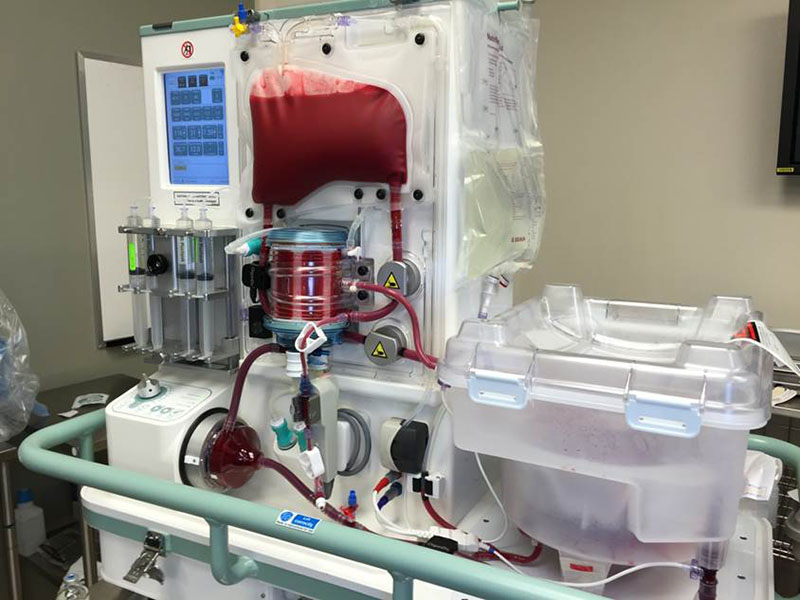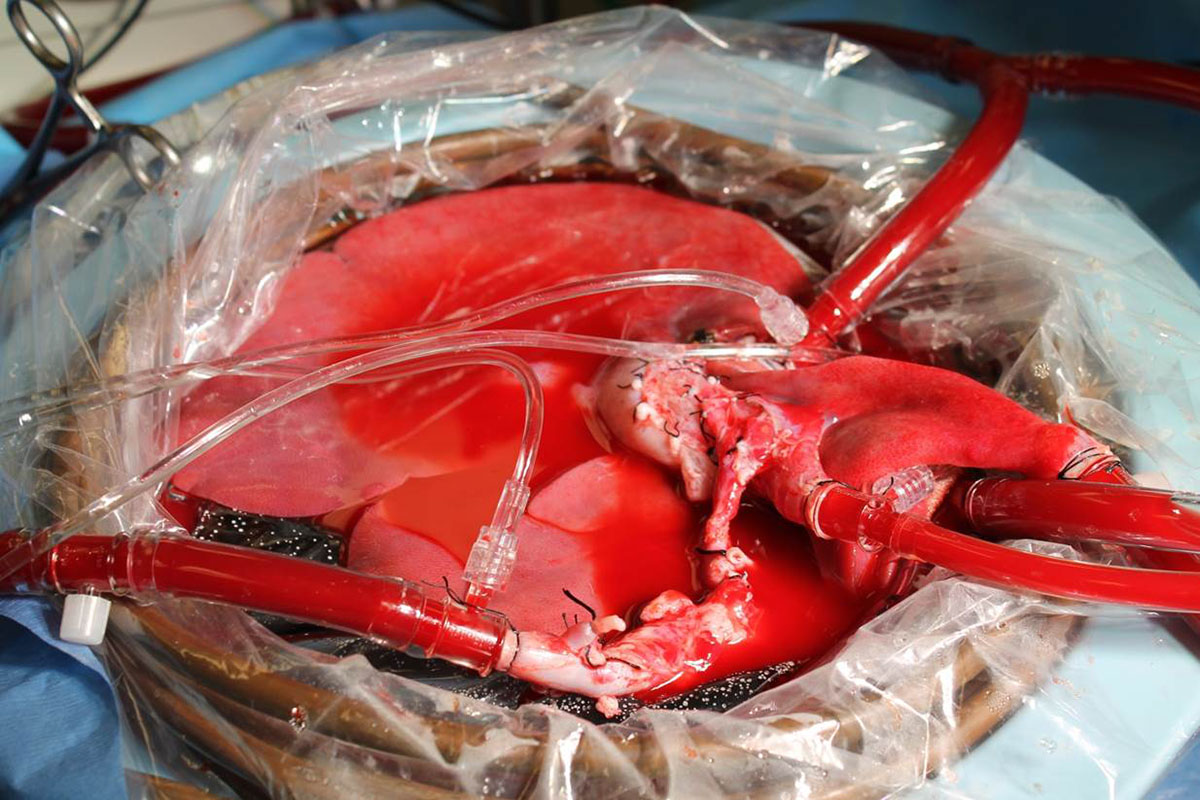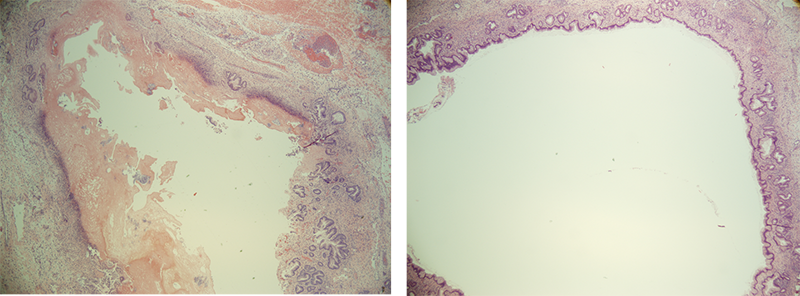Research Program
Overview
It is our goal to train future leaders in transplant hepatology who will provide excellent care, but also advance the field by innovative research. Our transplant hepatology fellows are expected to engage in our research program besides their clinical training. Most fellows choose to be involved in our clinical outcome research projects under the guidance of our staff hepatologists and surgeons. Various basic science opportunities exist for trainees with specific interests.
Clinical Outcome Research
Our liver transplant program maintains a large database with over 3000 liver transplant recipients. It contains a unique patient population, such as a large number of patients with living donor liver transplantation, transplants with extensive hepatocellular carcinoma (Toronto criteria), or multi-organ transplantation. We provide a database manager and analyst and a statistician to support the fellows in their clinical outcome research projects.
In addition to retrospective outcome research or program includes cutting edge prospective translational research studies:

Normothermic ex vivo liver perfusion: Drs. David Grant & Markus Selzner
Based on our extensive large animal studies we have initiated a clinical trial using normothermic ex vivo liver perfusion for the storage and assessment of marginal grafts. Marginal grafts are connected at the donor hospital to the Metra device and are warm perfused witch an oxygen and nutrition containing solution until recipient transplantation. This new technology minimizes cold ischemic injury and allows assessment of metabolic function during the liver preservation period.
Liver Transplantatoin for Malignancies: Dr. Gonzalo Sapisochin
My research group focuses on the interface between liver transplantation and hepatobiliary malignancies. A large part of this research is on improving the management of hepatocellular carcinoma (HCC). We have developed a Liver Cancer Research Group with members of every discipline managing patients with this disease fostering collaborative studies. We are developing and have clinical trials related to this area as well as ongoing prospective and retrospective analysis of our HCC database with more than 800 patients. Other areas of interest include liver transplantation for other malignancies such as colorectal liver metastases or cholangiocarcinoma. Translational research is also part of this research.
The virtual Liver: Dr. Ian McGilvray
Description coming soon…
Characterization of HCC, NASH and Liver Regeneration in The Context of Liver Transplantation: Dr. Mamatha Bhat
Dr. Bhat’s research program employs a bench-to-bedside paradigm that connects clinical outcomes with basic research using tools of epidemiology and systems biology. The systems biology approach includes bioinformatic analysis of ‘omic datasets ( e.g. transcriptomic, miRNA, methylation, intestinal microbiome) pertaining to the clinical conditions to better understand the dysregulated genes, protein-protein interactions, key pathways, optimal therapeutic targets, and tying these ‘omic datasets to clinical outcomes with epidemiological tools. This is followed by validation of findings using patient samples/clinical cohorts, in silico, in vitro, and in vivo approaches. The research team has people with interdisciplinary skillsets and has projects in basic science, informatics and clinical outcomes/epidemiology.
Basic
TOPIC – Dr. Mamatha Bhat
Description coming soon…


Reperfusion Injury: Drs. Nazia and Markus Selzner
The Toronto liver preservation injury laboratory is focused on normothermic ex vivo liver perfusion for the storage, assessment, and repair of marginal grafts. In a large animal model of pig liver transplantation we explore the impact of warm perfused preservation on graft injury and function. During warm ex vivo organ perfusion the grafts have an active metabolism. This allows for the first time to assess graft function during the preservation period prior to transplantation. We aim to identify biomarkers predicting graft function and injury during ex vivo perfusion to safely extend the donor pool with marginal grafts. In addition, the technique of warm perfused organ preservation offers the opportunity for graft repair and modification. Improving marginal grafts, inducing resistance against viral infections, and modulation of immune response are new avenues of graft treatment during the ex vivo perfused preservation.
Stem cell biology: Dr. Anand Ghanekar
My laboratory is located in the MaRS complex and has active collaborations with senior investigators in transplantation (G. Levy), stem cell biology (G. Keller), and cancer biology (J. Dick). We utilize state-of-the-art techniques in molecular and cellular biology, as well as small animal models.
Current Research
- Elucidating the role of cancer stem cells in the pathogenesis of human hepatocellular carcinoma We are utilizing human HCC resection specimens to generate in vivo models of primary human HCC by generating tumor xenografts in immunodeficient mouse strains. We are also developing methods for stable in vitro culture of primary human HCC cells. We anticipate that these resources will permit the identification and characterization of tumor initiating cells in human HCC.
- Studying the pathophysiology of a variety of human liver diseases through the use of induced pluripotent stem cells We are interested in studying the developmental biology of human liver cell populations (hepatocytes and cholangiocytes) through the use of embryonic and induced pluripotent stem cells. We are interested in studying the differentiation potential of induced pluripotent stem cell (iPS) lines generated from patients with diseases of liver development in order to elucidate the mechanisms by which liver development is affected.
Nanotechnology, genomics/proteomics: Dr. Ian McGilvary
Description coming soon…
Dendritic cell biology: Dr. Mark Cattral
Description coming soon…

